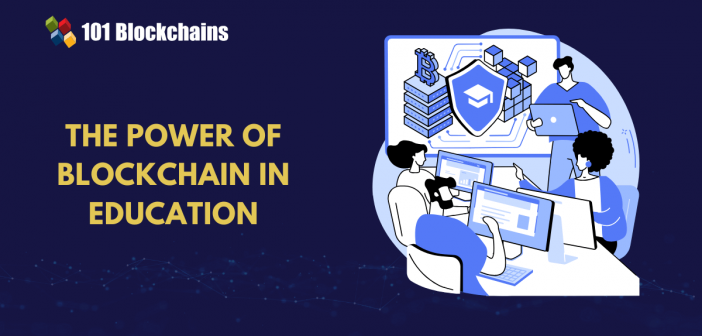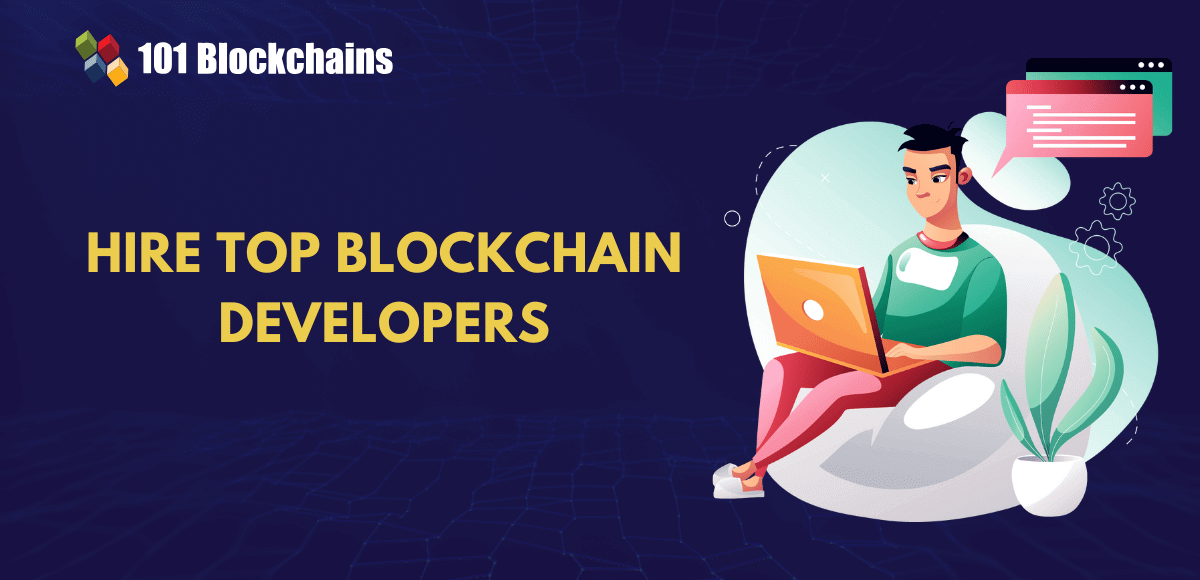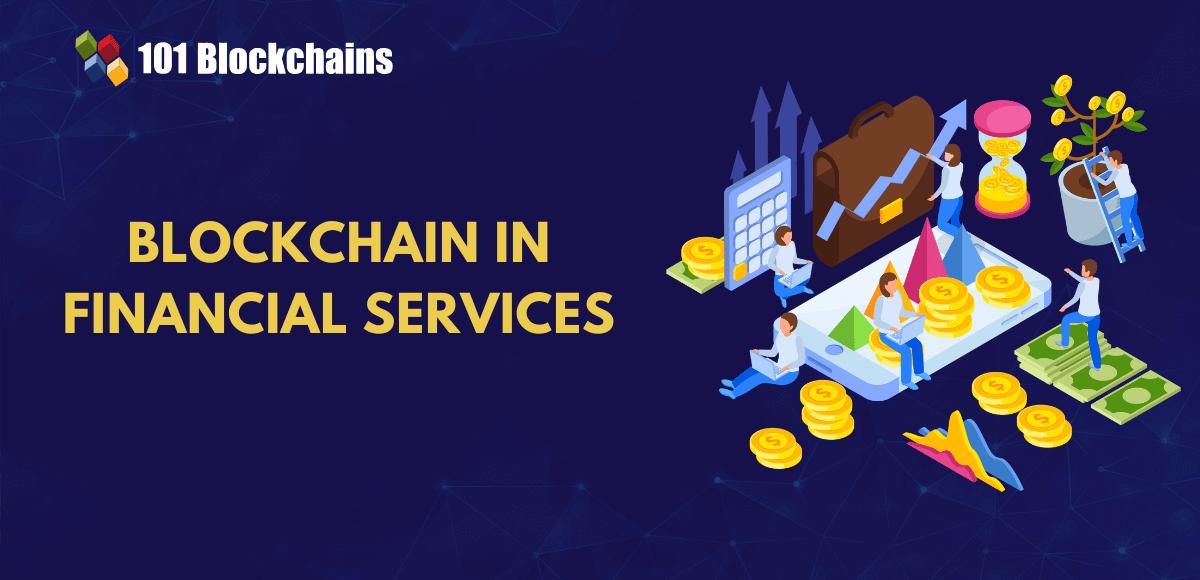Learn how blockchain truly works, master key definitions, and uncover what makes smart contracts so "smart." Dive into the fundamentals, gain valuable insights, and start your blockchain journey today!

- Blockchain
Georgia Weston
- on November 08, 2024
Unlocking the Power of Blockchain in Education
Blockchain technology emerged as a formidable force for changing processes across various sectors, including finance, healthcare, education and supply chain. The advantages of deploying blockchain technology in education help students as well as teachers and educational institutions. Students can find secure ways to validate their skills and continue their academic journey with more control over their data. Teachers can find credible tools to measure their performance and improve their skills. Educational institutions can leverage blockchain to reduce their administrative workload and streamline various complex processes. Let us find some insights on the potential ways to unlock the power of blockchain in education sector.
Build your identity as a certified blockchain expert with 101 Blockchains’ Blockchain Certifications designed to provide enhanced career prospects.
Discovering the Reasons to Focus on Blockchain
You might wonder about the reasons to shed the limelight on blockchain as a transformative force for the education sector. Blockchain brings a unique design to exchange information and value over a decentralized network of computers or ‘nodes’. It has become one of the top choices for digital transformation in the education sector for introducing transparency and security.
You can also consider the benefits of immutability with blockchain as the other prominent reasons to embrace blockchain in education. It is also important to note that blockchain leverages cryptography for the security of digital transactions, thereby ensuring better integrity. You can capitalize on digital signatures and cryptographic algorithms to prevent misuse of academic resources and sensitive student data.
Most of the answers to questions like ‘How can blockchain be used in education?’ reveal that blockchain has become popular for its distinctive traits. Decentralization is the foremost trait of blockchain that differentiates it from the traditional centralized systems. With decentralization, you will not find intermediaries in the academic journey of students. Decentralization also ensures that a single entity or central authority cannot tamper with academic data of students. Educational institutions can capitalize on decentralization to improve efficiency in different tasks without the intervention of intermediaries.
Notable Use Cases of Blockchain in the Education Industry
You can use a review of the use cases of blockchain in education to determine its transformative potential. Blockchain has been painted as a trusted tool to incorporate decentralization, transparency and automation in many sectors. You can use examples of blockchain in education use cases to unravel the practical ways for making the most of blockchain in education. The following applications of blockchain have been gaining popularity in various educational institutions worldwide.
-
Verification of Academic Credentials
Blockchain has registered the most groundbreaking impact on the education sector with a new approach to verification of academic credentials. Traditional systems for verification of academic degrees or certifications involved multiple stamps and signatures. With the help of blockchain, educational institutions can remove many intermediaries from the credential verification process. Credentials stored on a blockchain can be accessed easily with few clicks, thereby removing the labor-intensive processes.
-
Automated Smart Agreements
Educational institutions can leverage blockchain to capitalize on smart contracts and their unique applications. Smart contracts can bring the benefits of automation to various administrative processes in educational institutions. You can use smart contracts to encode specific rules and conditions for executing certain agreements. The application of blockchain in education with smart contracts can help in automation of fee payment and student enrolment processes. It is also important to note that smart contracts reduce manual errors and improve efficiency of administrative tasks.
-
Systems for Decentralized Learning
Decentralized learning management systems represent another revolutionary use case of blockchain in the education sector. Amidst the transition from traditional classrooms to digital learning solutions, decentralized learning management systems will represent a paradigm shift in education. As a global pandemic taught the importance of digital learning to the whole world, online learning management systems or LMSs gained popularity. Blockchain technology can help in improving LMSs by introducing the element of decentralization. Decentralized learning management systems can streamline the conventional approaches for managing academic data alongside enhancing communication between teachers and students.
-
Student Data Management
Blockchain serves as a trusted resource for verifying and managing student credentials alongside their personal data. Almost every educational institution has to store sensitive personal data of students, which makes them soft targets for hackers. With the benefits of blockchain in education, you can capitalize on cryptographic security and decentralization to safeguard student data. No one can modify student data stored on blockchain without the knowledge of other participants in the network.
-
Micro-Credentials
The uses of blockchain in education also pave the path for introducing micro-credentials as a valid proof of professional expertise. Micro-credentials refer to the certifications earned through completing smaller courses and training programs to learn special skills. Blockchain technology helps in maintaining a record of all micro-credentials earned through the academic journey of students. As a result, learners can showcase a comprehensive impression of their abilities that are relevant in modern job markets.
-
Safeguards for Intellectual Property
Intellectual property protection is one of the most notable concerns in the domain of education. Blockchain can provide a new approach for controlling the ways to share copyrighted academic content. Learners and researchers can store academic data securely on blockchain with the assurance of immutability. The immutability of data on blockchain ensures that no one can modify it manually. Owners of academic content can control the access to their intellectual property alongside tracking the usage of their content online. With blockchain, you don’t have to struggle to prove that you own a specific research piece or an article.
-
Allocation of Funds and Scholarships
You can also notice another revolutionary use case of blockchain in education for allocating funds and scholarships. Blockchain offers the advantages of smart contracts to ensure automatic allocation of scholarships. Students can receive scholarships and grants automatically upon enrolling in a specific course or achieving good grades. Smart contracts enhance the process of allocating scholarships and grants by removing intermediaries, thereby assuring freedom from bureaucratic hurdles. Most important of all, blockchain guarantees the transparency of the scholarship allocation process.
-
Monitoring Teacher Performance
Teachers can also capitalize on the advantages of blockchain technology in education to boost their professional development. Blockchain can serve a transparent ledger to record peer reviews and student feedback about teacher performance. The administrative personnel of educational institutions can use data on teacher performance to conduct reviews and encourage professional development. You can notice how blockchain can provide a formidable boost to teacher accountability, thereby improving the quality of education.
Familiarize yourself with the complete Ethereum smart contract development lifecycle and gain fluency in the best practices for smart contract coding, testing, and deployment with Smart Contracts Development Course.
Advantages of Using Blockchain in the Education Sector
The different applications of blockchain technology in the domain of education reveal a glimpse of the benefits of blockchain. Blockchain technology can help in transforming the learner experience alongside streamlining various tasks. You can find the best reasons to embrace blockchain in education through a review of the following advantages.
-
Comprehensive Skill Development
Blockchain not only improves security of student credential management but also opens the doors for widespread adoption of micro-credentials. Common student credentials such as course certifications and badges on blockchain can provide credible proof of their skills and knowledge. On top of it, micro-credentials on blockchain can prove the special skills of learners and help them find better opportunities for professional development. Learners can also leverage blockchain to create personalized learning paths for continuous learning and skill growth.
-
Improved Accessibility of Education
The next important addition among benefits of blockchain in education is the assurance of better accessibility. Blockchain can help everyone gain access to educational resources such as books and podcasts in the public domain. It also provides a secure and cost-effective platform for exchanging educational resources on a public network. Blockchain can empower learners from remote areas by helping them complete courses and exams without geographical barriers.
Navigating through Challenges of Embracing Blockchain in Education
Blockchain seems to have formidable potential to revolutionize the education sector with new use cases and distinctive benefits. At the same time, you must also look for challenges that can affect the implementation of blockchain in education. Some of the prominent challenges for incorporating blockchain in the education industry include the requirement of technical expertise, data privacy and limitations on integration with existing systems.
Students have also complained about some difficulties while using blockchain-based credentials. Educational institutions must acknowledge the validity of blockchain credentials to ensure that they become more popular among students. The cost of implementing blockchain for credential verification and monitoring teacher performance may be one of the obstacles for educational institutions with limited budgets. Furthermore, the lack of standardization for storing and sharing academic credentials can create problems of interoperability.
Start learning Blockchain with World’s first Blockchain Career Paths with quality resources tailored by industry experts Now!
Final Thoughts
Blockchain technology has everything that can transform the education sector. It can not only revolutionize the way students learn but also the way teachers teach by offering diverse advantages. Learners can find a secure and transparent solution to store their academic credentials while teachers can reduce their administrative burden. The demand for application of blockchain in education will continue to grow as digital transformation gains momentum.
While blockchain presents some impressive benefits to transform education, it also comes with formidable challenges. One of the foremost solutions to the challenges for integrating blockchain in education sector is blockchain training and education. Learn more about the fundamentals of blockchain to explore its utility in the domain of education right now.






